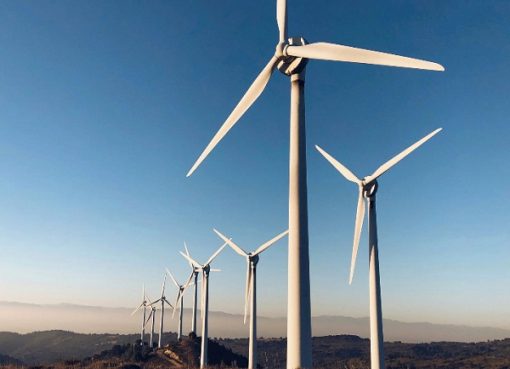Though gas shortage is the main problem of electricity generation firms, experts say other challenges, such as the rising debts profile of the power firms, gas price and transmission bottlenecks, are also threatening the sector
The power sector is in dire straits. With a population of close to 200 million people, experts say the country needs between 50,000 megawatts (mw) and 60,000 Mw of electricity to survive. Although the industry has an installed generation capacity of 12,962mw, it generates 7,562 mw, of which only 5,375mw is available for transmission. Generating companies (GenCos) do not have the incentive to increase their capacity, because the country’s capacity for transmission is limited to about 8,100mw.
In all these, the country relies on two energy sources, gas-fired and hydro power plants for survival, while its off-grid electricity segment is still at the infancy stage. While the hydro power stations are not more than five, representing about 20 per cent of the country’s generation, the gas-fired or fossil fuel plants are 32, which represent 80 per cent of the power being generated in the country.
The hydro power plants are Kainji (760mw), Jebba (576.8Mw), Shiroro (600mw), all in Niger State; Zungeru (700mw), Kadin Kowa hydro (480mw), and Mambila Power Plant in Taraba State which is under construction.
Others are Aba Power Plant (140mw), Geregu 11 (434mw), Sapele (450mw), Olorunsogo (675mw), Egbema (338mw), Calabar (561mw), Ihovbor (450mw) and Azura (450mw).
Worse still, is that the country is surviving on less than 5,000mw, a far cry from what South Africa is generating to meet the needs of its 56.7 million population.
One issue, which has been canvassed by stakeholders, as the major hindrance to the growth of the power sector, is the shortage of gas and its cumulative effects on the production of electricity in the country. Though the issue has been discussed at local and international fora, with a view to proffering solutions to it, the solution appears not in sight.
According to close watchers of unfolding events in the sector, making gas available for production of electricity remains a challenge, because stakeholders, including the Federal Government, have not deemed it fit to address what they termed ‘specific problems’ in the sector.
They said the problems are debts, rising cost of transporting gas to generation companies, where it is needed to produce electricity, poor storage facilities and difficulties in evacuating power to power distribution firms by the Transmission Company of Nigeria (TCN), among others.
The Association of Power Generation Companies (APGC) Executive Secretary, Dr. Joy Ogaji, said the growth of the electricity industry was endangered, because the debts owed generation companies were yet to be paid.
She said the payment of debts owed generation firms is key to their growth, adding that the delay in paying the debts has untold effects in their businesses. According to her, power output would continue to be low for as long as the GenCos are still being owed in the industry.
Dr. Ogaji said: “Where do you expect generation firms to recoup the money spent on procuring gas for production? She said neither the energy distribution firms nor the Nigerian Bulk Electricity Trading Company (NBET) Limited was making moves to offset the debts.
“The power generation companies are being owed over N1 trillion by DisCos and NBET. The energy distribution firms paid 16 per cent and 17 per cent of the debts in June and July, this year. How can the GenCos survive under this environment? “
NBET was set up by the Federal Government to administer and control energy pool. She said the debts were accumulated because the DisCos decided to take electricity on credit from the GenCos. She said the GenCos have enough gas to produce power at the moment.
Energy, Dr. Ogaji said, is not a physical product that can be displayed in the shop, arguing that operators, such as DisCos, should be able to pay for the electricity given to them by the power generation firms.
Another problem, which the sector is facing, she said, has to do with energy transmission.The transmission capacity, she said, is limited and the development is hindering the ability of TCN to transmit enough electricity to DisCos.
“What is the benefit of generating energy, which cannot be transmitted to DisCos for onward supply to consumers? The problems in the sector vary from one section to another. The three arms – transmission, distribution and generation – have their own challenges. But it would be good if the money owed the power generation firms is paid to enable them stay in business.”
However, the former Chief Executive officer, Nigerian Gas Company(NGC), Dr. Godswill Ihetu, said gas is not a problem. he the country is blessed with huge gas reserves to grow its economy.
With 600 trillion of unproven gas reserves and over 187 trillion of proven gas reserves, he said the country has enough gas.
Ihetu said: “If it is to meet the needs of the international and domestic market, the country has enough gas to do so. He said the Nigerian Liquefied and Natural Gas (NLNG) Limited was not established to meet domestic needs like providing gas to the power firms.”
Ihetu, also a former managing director of NLNG, said the firm only provides Liquefied Petroleum Gas (LPG) to the country, not natural gas.
“This explains why some International Oil Companies (IOC) that are operating in the country and their local counterparts are made to provide gas for the power generation firms in the country,” he said, adding that the sector has problems, such as pipeline vandalism, a development that has made it difficult to supply gas to thermal plants.
Source: The Nation










